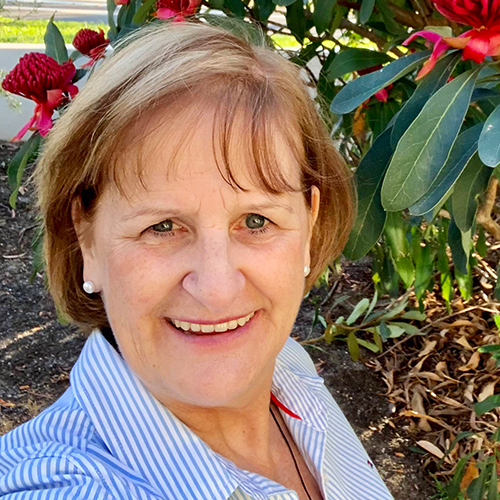 IBCLC Detailed Content Outline: Clinical Skills / Education and Communication Focused CERPs - Section VII B
IBCLC Detailed Content Outline: Clinical Skills / Education and Communication Focused CERPs - Section VII B
Access CERPs on Clinical Skills / Education and Communication for the IBCLC Detailed Content Outline recertification requirements. On-demand viewing of the latest Clinical Skills / Education and Communication focused IBCLC CERPs at your own pace.
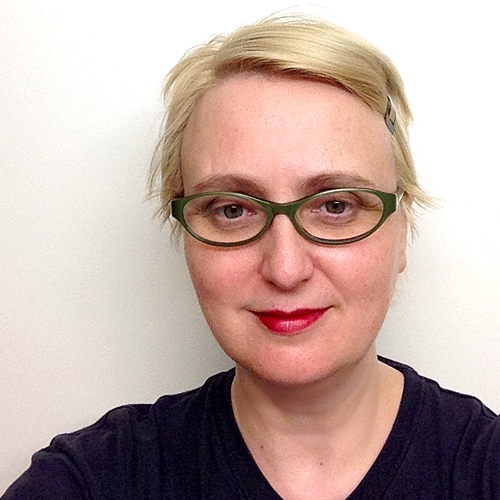
Rummaging in the Tool Bag: Examples of Approaches Borrowed from Other Disciplines, Applied in Lactation Support Practice

After working in the UK and France, lecturing and then in film and TV production, Annabelle became a breastfeeding support volunteer in France 10 years ago, after the birth of her first child. She then worked in lactation support in the UK NHS in London, whilst also volunteering for the National Childbirth Trust (NCT). Since 2016, she was the Infant Feeding Coordinator at Suffolk County Council Health and Children’s Centres, and had a small private practice. In her county council role, Annabelle took the Health and Children’s Centre staff through Stage 1 of UNICEF Baby Friendly Accreditation, and left the department well prepared for Stage 2. Whilst there, she oversaw an increase in breastfeeding rates, and contributed to Public Health initiatives to promote breastfeeding, including help to improve breastfeeding knowledge amongst doctors. Annabelle qualified as an IBCLC, lactation consultant in 2017. In October 2018, Annabelle took up her current post as lactation consultant for the 48th medical group at RAF/USAF Lakenheath.
Rummaging in the tool bag: how we can borrow from other disciplines, and enhance our care.
As infant feeding specialists, we should be open to discovering new tools that renew our practice. Historically, we’ve incorporated elements from elsewhere, e.g. Active Listening (Rogers and Farson, 1957), borrowed from psychology and conflict resolution.
Changes to the UK support landscape, mean that parents may not access traditional breastfeeding peer support, and instead see health staff. A diversity of background, can mean staff bring additional skills that then complement those acquired under the UNICEF Baby Friendly standard.
For specialist professionals, such as IBCLCs, some of these tools can also complement practice, and can be used to great effect.
This presentation proposes to look at some elements we can borrow that enhance our clinical practice. We will review aspects of Active Listening, and then move on to examine elements in the Signs of Safety model and Solihull Approach. These are just two examples of widely practiced approaches in the UK, and there are many other fields to be borrowed from.

View Details / Enroll
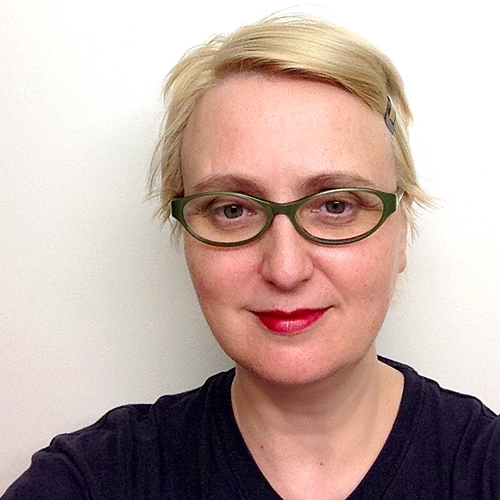
View Details / Enroll
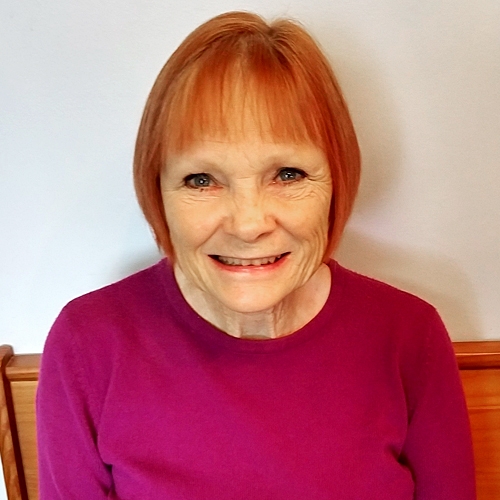
Sensory Integration and Breastfeeding

Nancy has been providing breastfeeding help and support for 40 years and has been a national speaker for 30. She has been a perinatal educator and consultant since the late 1970’s. Her second career is that of a Marriage and Family Therapist. Her passion is to explore the larger picture of the mother-baby dyad in the context of the breastfeeding relationship.
Topic: Teens and Breastfeeding - [View Abstract]
This session will look at sensory integration problems, now known as Sensory Processing Disorder. How might these difficulties impact the breastfeeding dyad and the family? We will describe this and present ideas on how to minimize the problems and support breastfeeding.
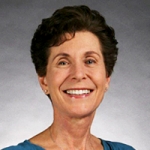
Seven Neuroprotective Core Measures: A Model for Implementing Family-Centered Developmental Care in the NICU

After raising three children as a stay-at-home mother, Dr. Phillips received a Masters degree in Developmental Psychology, became NIDCAP certified as an Infant Developmental Specialist, and then attended medical school at University of California, Davis, graduating in 2004. She completed her pediatric residency and neonatology fellowship at Loma Linda University Children's Hospital in Loma Linda, CA and is currently an attending neonatologist in the NICU at the same hospital as well as Co-Medical Director of Newborn Nursery at Loma Linda University Medical Center-Murrieta. Dr. Phillips is an International Board Certified Lactation Consultant and is a Fellow of the Academy of Breastfeeding Medicine. She is the immediate past president of the National Perinatal Association. Her primary areas of interest are mother-infant attachment, breastfeeding education and support, and Family-Centered Neuroprotective Care of premature infants in the NICU.
There is ample evidence that Family-Centered Developmental Care in the NICU results in improved neonatal and neurodevelopmental outcomes, increased family satisfaction and even enhanced employee satisfaction once the culture change has been accomplished. However, implementing the known principles of Family-Centered Developmental Care in the NICU to create those culture changes has long been a challenge. Several models of implementing developmental care have been tried and met with varying challenges and degrees of success. The Seven Neuroprotective Core Measures of Family-Centered Developmental Care in the Neonatal Integrative Developmental Care Model has been trialed in our NICU for the past three years and has proven to be effective as a tool to bring about staff buy-in and engagement in the process of implementing Family-Centered Developmental Care principles into the culture of our NICU.

View Details / Enroll

Sharing Your Wisdom: From Abstract Idea to Awesome Prenatal Breastfeeding Class

Christy Jo has over 25 years of teaching experience. She is passionate about teaching in ways that simplify learning. She has been awarded the United States Presidential Volunteer Award for her community service, the Phyllis Klaus Founder's Award for her contribution to the Mother/Baby bond and the Above and Beyond Award for innovative projects that exemplify the mission of Public Health. She has also been named Lactation Educator Faculty of the Year from Childbirth and Postpartum Professionals Association and earned their Visionary Award in 2015. Christy Jo is the author of Mommy Feeds Baby and co-author of Making Milk. She created the Grow Our Own Lactation Consultant/IBCLC Prep Course which has been used to train hundreds of students to become Lactation Consultants. She currently resides in California with her husband and three children. She continues to serve her community as a birth doula, Private Practice IBCLC, Health Educator for Public Health, and faculty for the CAPPA CLE© and Childbirth Educator Programs.
Topic: Enhanced Counseling Skills for the Lactation Educator - [View Abstract]
Topic: Expanding Our Audience to Gain Greater Appreciation and Acceptance of Breastfeeding - [View Abstract]
Topic: Sharing Your Wisdom: From Abstract Idea to Awesome Prenatal Breastfeeding Class - [View Abstract]
Topic: The Art of Communication: Simplifying Birth and Breastfeeding - [View Abstract]
Get that idea of creating a prenatal breastfeeding class out of your head and make it a reality! You have wisdom to share, but how do you share it in a way that captures parents’ attention and appeals to different learning styles? In this interactive presentation, I’ll guide you through the process of creating a prenatal breastfeeding class. Join in as we work with tools and handouts that will help you create a prenatal breastfeeding class that meets the goal of setting parents up for breastfeeding success!

View Details / Enroll
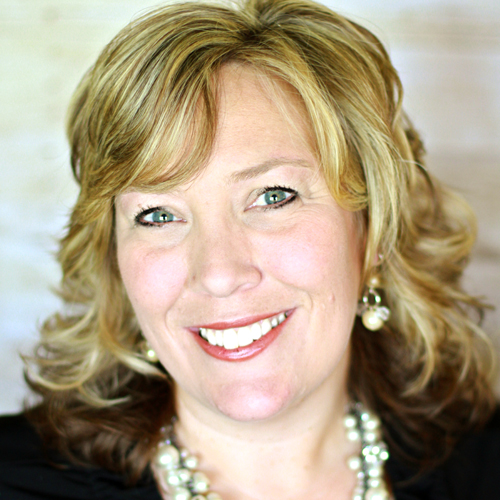
View Details / Enroll
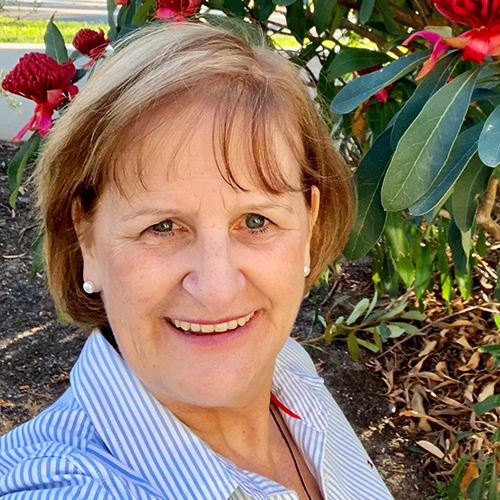

Decalie is a Registered nurse/midwife with over 40 years of experience collectively working as an IBCLC in a clinical roles within Primary Care and Community Health. Currently working as a Child & Family Health Clinical Nurse Specialist 2 in busy Community of the Blue Mountains, NSW Australia. She supports health professionals and parents with education of lactation/infant feeding/settling and behavioural issues for infants and children 0 to 5 years of age as a clinical specialist. A current BFHI Assessor. Has shared her extensive clinical experience in workshops at many ILCA, LCANZ and ABA conferences over the years. Her passion in support for mothers and babies.
Decalie has volunteered for Board of Director for the Australian Lactation Consultants Association (ALCA) 7 years on the ILCA International Lactation Consultant Association, last 2 years as President. On the Inaugural World Trends Initiative WBTI AUS Core group. Advisory committee for International Childbirth Education Ass. ICEA. World Health Organisation working group for revision of BFHI Education package, WABA advisory group. ILCA Nominations committee chair, IBCLC Care award Co chair.
Enjoying the next level of parenting being Mimi to her 3 year old grandson Cole.
The breastfeeding journey for a woman and her baby is very special. Mothers who may be larger-breasted and lactating often have special breastfeeding needs and issues. This online session empowers clinicians with supportive tools to help these women successfully breastfeed. This session will enable clinicians to utilize simple, practical techniques, tips, explore the challenges of larger breasts during lactation. Attendees will develop their advanced breastfeeding counseling skills to manage individual situations and provide the unique support necessary. The research shows that if mothers with above average weight are provided with the appropriate breastfeeding management and support early, their breastfeeding experience will be enhanced and sustained. This sensitive session is designed to aid clinicians in developing their own practical breastfeeding support kit, as well as honing specific skills for a positive outcome when supporting larger breasted women to breastfeed their babies.

View Details / Enroll

Skilled Lactation Support in Suboptimal and Low Resource Settings: Onsite Mentoring as a Game Changer

As a Pediatrician and an IBCLC, Shacchee is attracted to ways of promoting health and well-being for families. She transitioned to lactation support 14 years ago after her first daughter was born, realising the felt need for skilled Lactation Support in her community.
She works at a tertiary care hospital in New Delhi, India, and heads a Lactation team, supporting families in their antenatal, intra-natal and postnatal periods. She also trains medical and paramedical staff in skilled lactation support.
She is the current President and Executive Team member of ALPI (Association of Lactation Professionals India). She works as a clinical instructor, helping train future lactation professionals in various aspects of Skills, Ethics, Scope of Practise and Communication.
She co-ordinates between Public and Private healthcare bodies to provide equitable lactation support across her community.
She is an advocate of teamwork in supporting dyads with special lactation challenges (oral restrictions/ NICU babies etc) and has been working to bring experts from different fields together for comprehensive lactation support.
Working with different teams locally and nationally allowed her to achieve the goal of making, "skilled lactation support a reality in India."
Married to Vipul, they have two super girls Navya (14) and Ayana(11).
We have protocols and optimal models of care for lactation specific challenges. Does this mean we cannot provide optimum support in resource limited settings or less than ideal settings?
Skilled lactation support can mean different things in different settings. To serve a community, its crucial to understand the particular needs of the community and to be able to cater to them in a culturally acceptable and feasible way without compromising on the quality of lactation care, more so in resource limited settings.
India has a huge population of families in need of lactation support and we also have scarcity of skilled and trained lactation support people. We are such a diverse country that our customs, language, socioeconomic milieu (and thus the challenges) change every few Kilometres.
This presentation talks about the various means with which we were able to improve the availability Skilled Lactation Support in the community, especially utilising our most plentiful resource, our community, with online and onsite mentoring....i.e. skilled lactation support to the community by their own community.

View Details / Enroll

View Details / Enroll
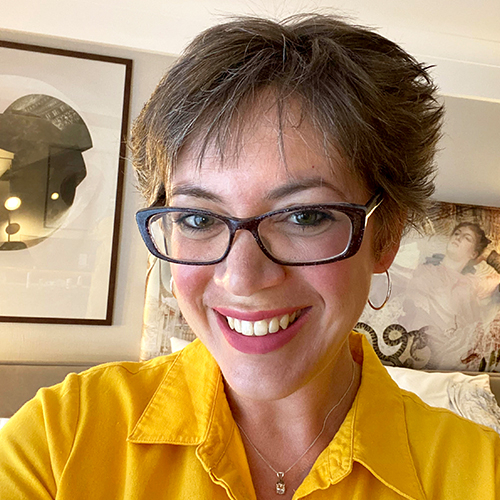
Supporting Families With Sleep While Optimising Attachment and Responsive Feeding

Lyndsey is an experienced paediatric nurse, children’s public health nurse, International Board Certified Lactation Consultant, Holistic Sleep Coach, researcher and responsive parenting advocate. She has worked in hospitals, clinics, the community and within clients’ homes for 20 years, serving within the UK NHS, in private practice and voluntarily.
The co-founder and clinical director of the Holistic Sleep Coaching program, Lyndsey regularly teaches internationally, as well as providing mentorship for newer sleep coaches. She is passionate about responsive feeding, gentle parenting and promoting parental confidence and well-being.
With Professor Amy Brown, she is the co-founder of Thought Rebellion – an education and publishing company seeking to inspire, challenge and equip professionals and writers in the parenting, lactation and perinatal space with an evidence based revolution.
Lyndsey is currently a PhD researcher at Swansea University, exploring the needs and challenges of medically complex breastfed infants and children. In 2019 she set up the Breastfeeding the Brave project to raise awareness of the unique breastfeeding needs of chronically, critically, and terminally ill children in the paediatric setting. The mother of a childhood cancer survivor, she often talks about the impact of chronic serious illness on families, and seeks to support other families living through a serious childhood illness.
Lyndsey is a respected international speaker and teacher, and regularly speaks out against the dominant sleep training culture, as well as advocating for the rights of families to receive high-quality, compassionate and expert support. She is the author of Holistic Sleep Coaching (2018), Let’s talk about your new family’s sleep (2020), Still Awake (2021), Breastfeeding the Brave (2022) and co-author of The Writing Book (2022).
Topic: Breastfeeding Children with Cancer - [View Abstract]
Topic: More Support in a Coffee Shop Than in the Hospital: Experiences of Breastfeeding Children With Medical Complexity - [View Abstract]
Topic: Supporting Families With Sleep While Optimising Attachment and Responsive Feeding - [View Abstract]
Topic: You Can't Sleep With Your Foot On The Gas Pedal: How To Improve Sleep By Tapping Into Calm - [View Abstract]
Many parents feel confused about how to approach sleep with their infants. There is a lack of consistent, evidence-based information about infant sleep, and in the context of ever-increasing contextual pressures, this can lead many parents to ask for help with sleep. However, sleep information that is respectful to mental health, attachment and breastfeeding can be hard to find, particularly when national guidelines seem to advocate approaches that promote a non-response. Perinatal professionals are uniquely placed in positions of trust with families, and possess advanced skills in listening, counselling and providing information. They are therefore well-placed to provide information to families about sleep proactively, which may reduce parental stress and frustration, and lead to fewer families becoming desperate and turning to solutions that include cessation of breastfeeding, separating parents and infants, and leaving infants to cry.
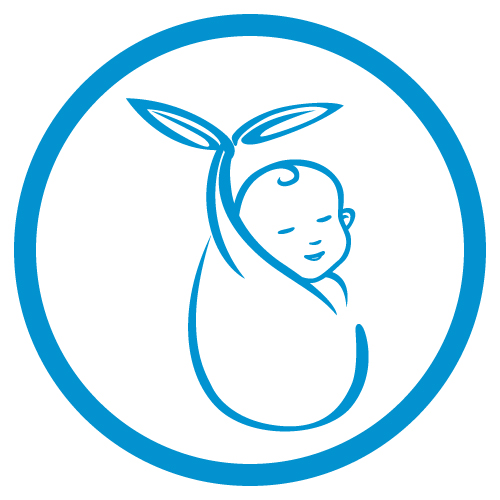
View Details / Enroll
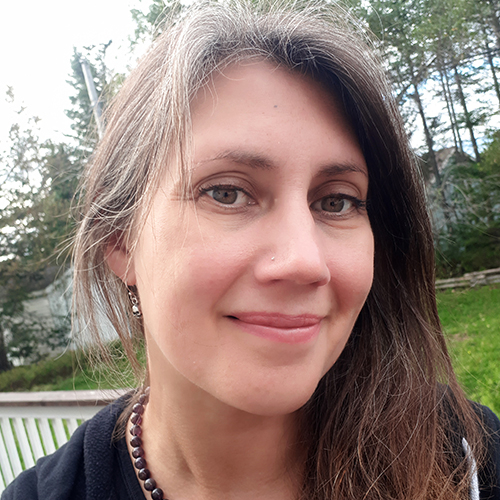
Supporting Older First-Time Mothers with Breastfeeding and Becoming a Mother: Insights for Clinical Practice

Rosann Edwards is an Assistant Professor in the Department of Nursing and Health Sciences at the University of New Brunswick Saint John, an experienced front line public health nurse, and lactation consultant. She is also a third-degree karate black belt, and mother of boys. Rosann’s research and community work focuses on breastfeeding, the transition to motherhood, maternal satisfaction with breast/infant feeding, mothering in the shelter system, and empowering vulnerable populations of women and their children. She is the co-editor of the recent Demeter Press Anthology Breasts across Motherhood: Lived Experiences and Critical Examinations.
Topic: Supporting Older First-Time Mothers with Breastfeeding and Becoming a Mother: Insights for Clinical Practice - [View Abstract]
Mothers 35 year of age or older are the fastest growing demographic of new mothers in many developed countries, & a steadily emerging global trend. The quality of a mother's breastfeeding experience has the potential to affect breastfeeding duration and factors that promote healthy maternal-infant attachment, infant growth and development, and maternal mental health. There is a lack of understanding of how older first-time mothers make decisions about breastfeeding and mothering. Learn more about new research that looked to answer the research question ‘What factors affect how first-time mothers >35 years of age make decisions about breastfeeding and the motherhood in the first six months postpartum?’ The findings provide a framework to work in partnership with older first-time mothers to enhance positive breastfeeding experiences, adaptation to motherhood and positive mental health outcomes through strategies that promote resiliency and shared decision-making around early postpartum care, and breastfeeding/infant feeding supports. Key components include helping mothers identify what satisfaction with breastfeeding is for them, encouraging increased levels of knowledge, control, trust and ownership, supporting them in redefining their core self, and providing realistic, evidence-based information.
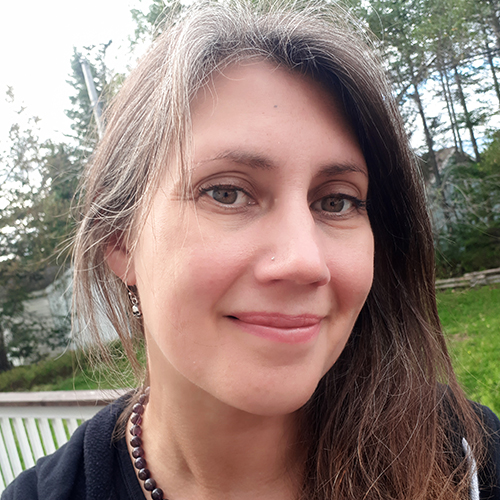
View Details / Enroll
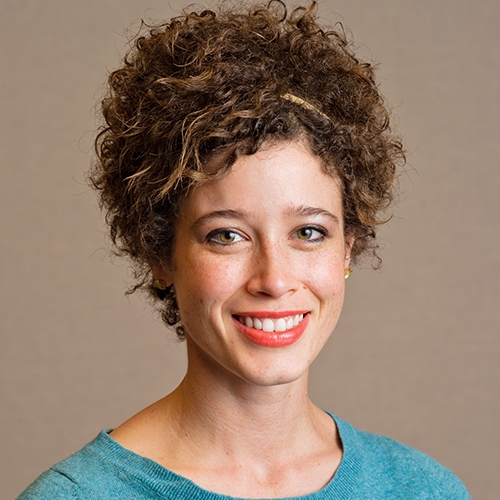
Supportive Breastfeeding Practices for Infants With Swallowing Challenges in the NICU

Chesney Willis, MHS, CCC-SLP, IBCLC is a certified speech language pathologist and lactation consultant from the University of Missouri Women’s and Children’s hospital. She earned her master of health sciences degree from the University of Missouri in 2008 and obtained her IBCLC in 2017. Chesney has over 13 years of experience working across outpatient rehabilitation, home-health, inpatient care for pediatrics and neonates in level II and III NICU settings. Clinical expertise includes evaluation and treatment of disordered swallowing and feeding in special neonate populations. Experience includes the development and dissemination of education for best feeding practices for late preterm and preterm infants to families and inter-disciplinary health care providers. She is passionate about supporting mother-baby breastfeeding dyads with special feeding considerations from hospitalization through the transition to home.
In this session, learners will explore the transition from gavage to breastfeeding in the NICU from the perspective of a premature infant. Babies born prematurely or with special needs typically develop safe feeding and swallowing at a slower rate. Early coordination of the swallow may be appreciated between 32 and 34 weeks gestation, with variability depending on degree of prematurity and underlying health conditions. Early breastfeeding success depends on identifying stress cues during feeding, teaching modifications, and keeping a flexible, developmentally sensitive care plan. Participants will learn to recognize bedside clinical signs of aspiration with special discussion of cough maturation and its long-term clinical implications.
Providers will be encouraged to support families from early antepartum with imminent preterm delivery, postpartum during the “golden hour” for an exclusively pumping mom, and introduction to Mother’s milk with early swallowing at bedside in the NICU. Working closely with lactation and therapy services ensures appropriate education and successful developmental expectations for the individualized NICU infant. Lastly, as families prepare for home, the importance of an inter-disciplinary team approach with appropriate discharge recommendations and community supports will be highlighted.
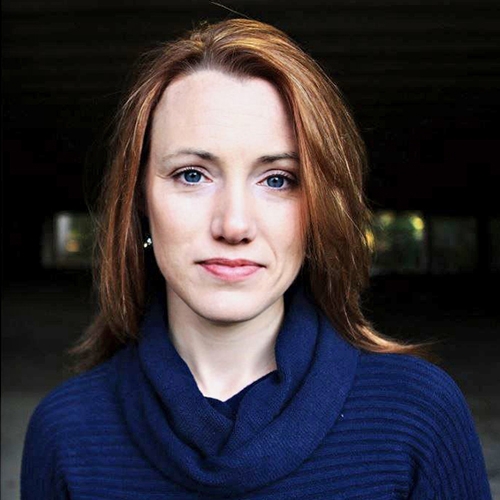
Survivor Mothers' Speak: Child Sexual Abuse Impacts Breastfeeding Experiences

Emily Taylor is nationally recognized for leading hospital transformations to advance health, happiness and equity in communities impacted by structural oppression.
As Founder and Director of WISE (Women-Inspired Systems’ Enrichment), Emily currently leads Perinatal Care Quality Improvement Collaboratives throughout the United States. The collaboratives feature equity and social justice, action-oriented knowledge and skill-building, community engagement, and advanced leadership development.
Emily serves as Chair of the United States Breastfeeding Committee – a coalition of more than 100 organizations that collaboratively drive efforts for policy and practices that create a landscape of breastfeeding support across the United States.
Prior to founding WISE, Emily was Deputy Director of the Carolina Global Breastfeeding Institute. There, she directed the National Collaborative for Advancing the Ten Steps and other collaborative programs. She also conducted myriad research studies resulting in publication on influence of infant formula marketing, implementation of the Baby-Friendly Hospital Initiative, access to donor human milk in the United States, child sexual abuse survivors’ experiences with breastfeeding, and organizational readiness to change.
Emily is currently pursuing her doctorate in Public Health Leadership at the University of North Carolina at Chapel Hill, the same school from which she earned her Master of Public Health from in 2007. She completed the Institute for Healthcare Improvement’s Improvement Advisor Professional Development Program in 2012, and Tamarack Institute’s “Champions for Change: Leading a Backbone Organization for Collective Impact” in 2013.
Her experience as a certified childbirth doula and Lamaze educator and her identity as a woman, feminist, sister, advocate, and equity accomplice continue to inform her work.
One in four girls in the United States report having been sexually abused before their eighteenth birthday. This session will explore how this experience impacts breastfeeding and how lactation supporters can play a positive role in both healing and feeding. A small amount of time will be dedicated to understanding the scope of child sexual abuse in the US. Participants will benefit from hearing lessons gleaned from contemporary peer-reviewed literature that explores the relationship between the surviving child sexual abuse and breastfeeding. The majority of time will be spent hearing from the experts themselves: mothers talking about how their experiences of child sexual abuse impacts their experiences with breastfeeding. Participants will gain insight to the vulnerability and resilience that exists within this large group. The session will end with recommendations for how to provide lactation support that respects and enhances parents’ opportunities to gain power, self-possession, softness and inter-generational healing.
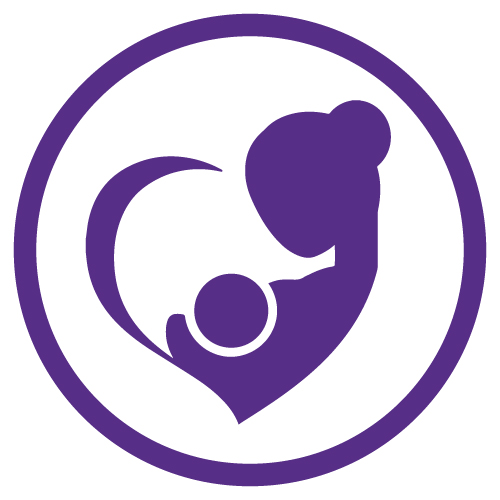
View Details / Enroll






